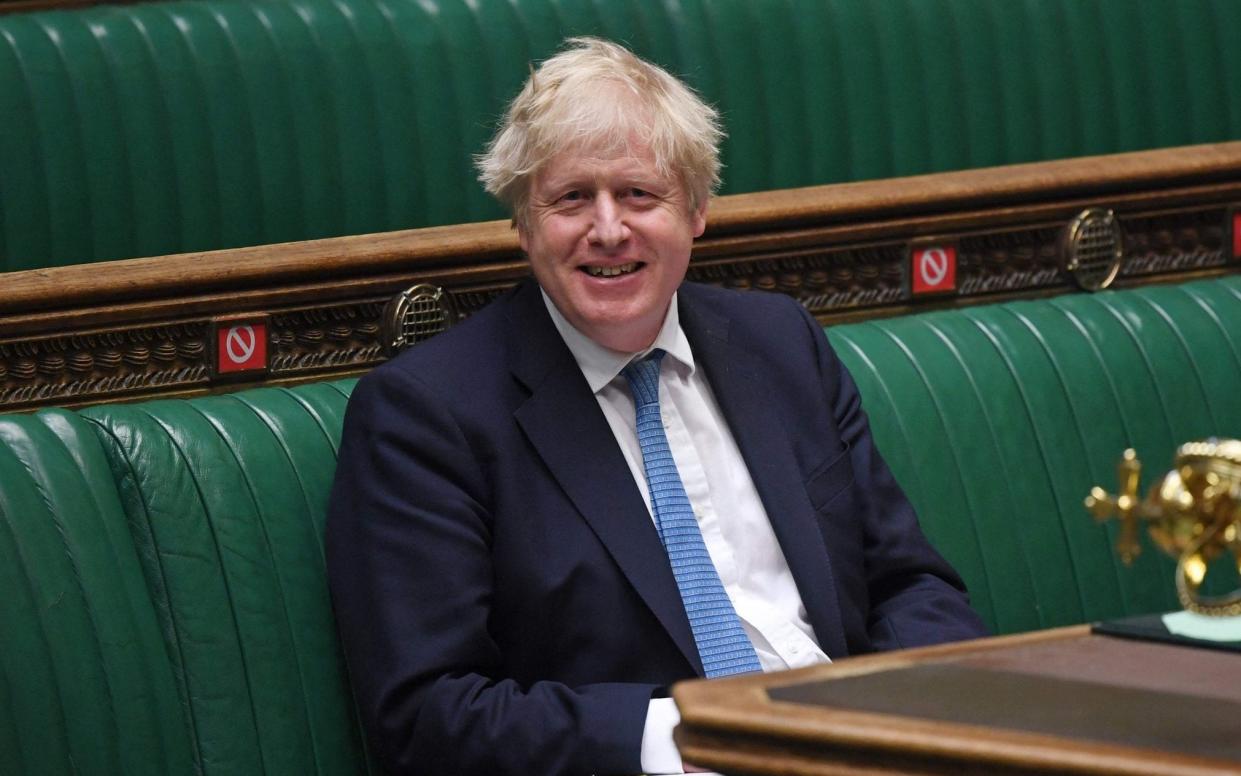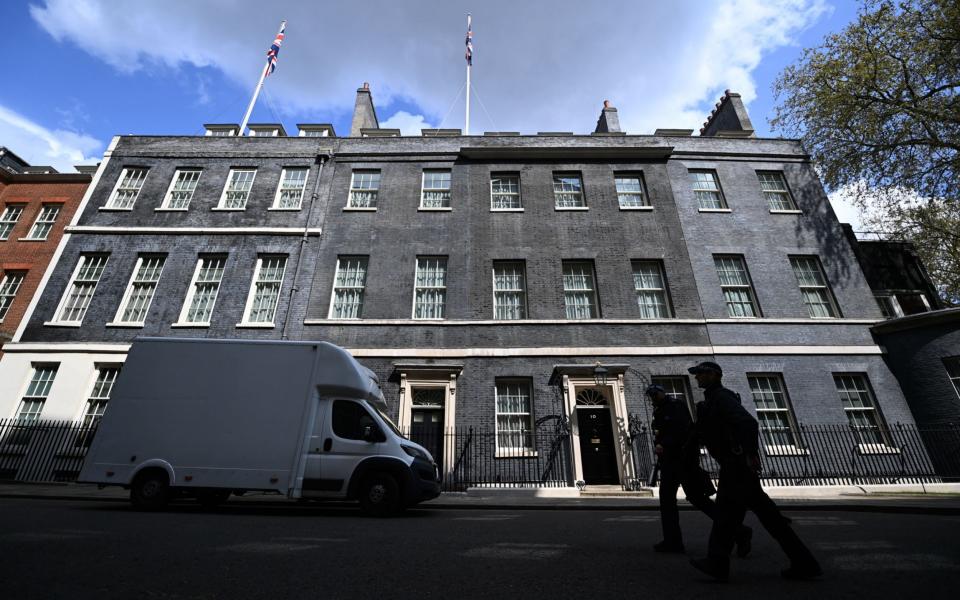Boris Johnson's unpaid £535 debt 'nothing to do with Downing Street flat'

- Oops!Something went wrong.Please try again later.
Boris Johnson is the subject of a county court judgment for an unpaid debt of £535, it emerged on Wednesday, as Downing Street insisted the claim was "totally without merit".
Official documents show that the judgment is from October last year and is registered to 10 Downing Street.
It relates to an unpaid debt of £535, but it was unclear to whom he owed the money.
On Wednesday Downing Street said an application would be made to "strike out the claim" because it was "totally without merit".
Sources claimed the judgment was a result of a "vexatious" claim. A well-placed source said that it related to a defamation claim against the Prime Minister that should not have been dealt with by the county court.
A No 10 spokesman said: "An application will be made for an order to set aside the default judgment, to strike out the claim and for a declaration that the claim is totally without merit."
He added: "I can confirm it is nothing to do with the refurbishment of the Downing Street estate, where all such bills have been duly paid, either by the Government or by the Prime Minister personally."

Asked whether the Prime Minister could be trusted with the nation's finances if he could not manage his own, the spokesman said: "I think our record on the economy is very clear."
Debt experts and lawyers said it was possible for "default" judgments to be given against individuals if no defence was received, which would mean a claim was not examined by a judge.
County court judgments (CCJs) often arise because of unpaid parking or utility bills but can also be initiated by individuals. When a customer owes money, companies are encouraged to send a "letter of claim" before starting a court action, giving 30 days to respond. However, it is possible for small companies or individuals to initiate legal action without doing so.
In Mr Johnson's case, the company or individual behind the application filled out a claim online because the court where the CCJ is registered is "The County Court online".
A debt management expert said that court correspondence usually went to the address given on the register of the judgments, which in this case was 10 Downing Street.
CCJs stay on an individual's file for six years and can stop them from being able to obtain a mortgage.
The existence of the CCJ was first reported by the satirical magazine Private Eye and came after weeks in which the Prime Minister had faced questions over how he paid for the redecoration of his flat above No 11 after a plan for Conservative donors to cover the cost fell through.
Dominic Cummings, the Prime Minister's former adviser, accused him of "possibly illegal" behaviour over allegations that he had drawn up plans for party donors to pay for the refurbishment.
It is understood Mr Johnson's fiancée was unhappy with Theresa May's "John Lewis nightmare" and wanted to revamp it with decor based on the work of the designer Lulu Lytle.
Prime ministers typically receive an annual allowance of £30,000 of public money to redecorate their homes, but Mr Johnson is said to have complained to advisers about the high costs that he had incurred after the bill ended up being much more than he had expected.
In a statement released to Parliament, the Cabinet Office said that the Prime Minister had "personally met" all the costs of the redecoration of the flat above 11 Downing Street.

